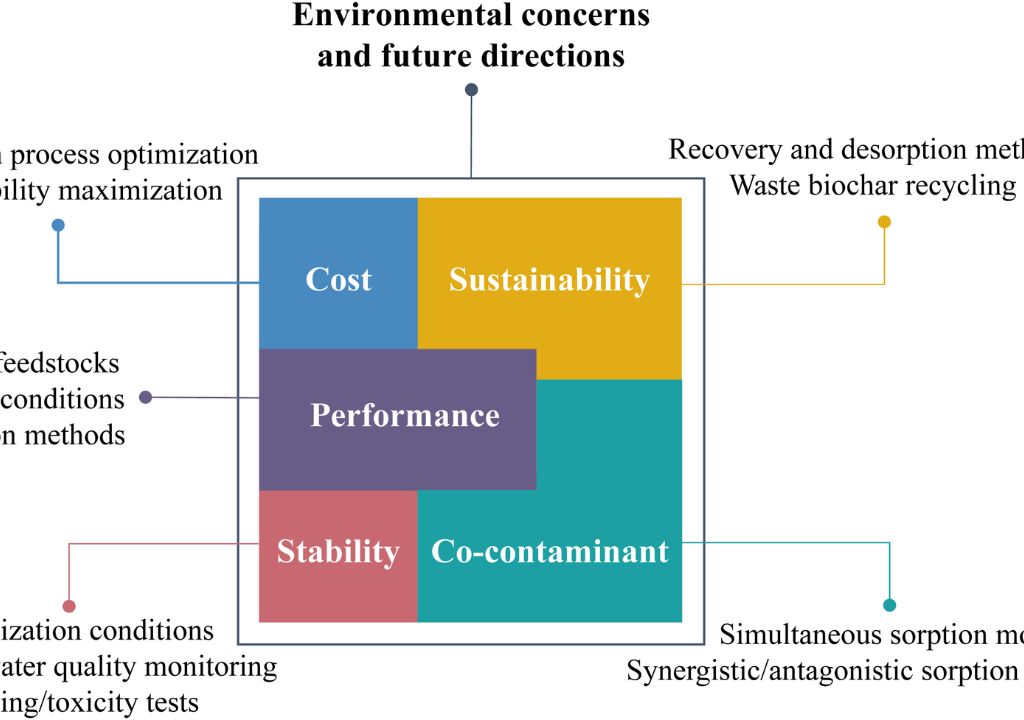Technological determinism is a theory that posits technology as the primary driver of social structure and historical changes. This concept suggests that technological advancements shape human society and influence cultural values, rather than the other way around. As we delve into this topic, we’ll explore its origins, key theorists, core principles, and its relevance in today’s rapidly evolving digital landscape.
Historical Background and Origins
The roots of technological determinism can be traced back to the Industrial Revolution of the 18th and 19th centuries. This period of rapid technological revolution witnessed dramatic shifts in manufacturing, transportation, and communication, leading to profound societal changes. The observable impact of these innovations on social structures and economic systems gave rise to the idea that technology could be a driving force behind historical changes.
Key Theorists and Their Contributions
Several influential thinkers have contributed to the development and popularization of technological determinism:
1. Karl Marx: While not strictly a technological determinist, Marx’s work on historical materialism emphasized the role of technological progress in shaping social relations and economic structures.
2. Thorstein Veblen: An American economist and sociologist, Veblen argued that technological changes were the primary cause of social and cultural evolution.
3. Marshall McLuhan: A Canadian philosopher, McLuhan popularized the concept of **media determinism**, suggesting that communication technologies fundamentally alter human perception and social organization.
4. Jacques Ellul: This French philosopher proposed the concept of “technique,” arguing that technological systems have become autonomous and dominate all aspects of society.
5. Lewis Mumford: An American historian and philosopher, Mumford explored the relationship between technology and urban development, emphasizing the **far-reaching effects** of technological changes on human civilization.
Core Concepts and Principles
The fundamental principles of technological determinism include:
1. Technological autonomy: The belief that technology develops according to its own internal logic, independent of human control.
2. Non-neutrality of technology: The idea that technologies are not neutral tools but have inherent biases and effects on society.
3. Societal impact: The assertion that technological changes lead to corresponding changes in social structures, cultural values, and individual behaviors.
4. Historical inevitability: The notion that technological progress follows a predetermined path, shaping history in predictable ways.
5. Technological momentum: The concept that once a technology is adopted, it creates its own inertia and becomes difficult to alter or abandon.
Technological Determinism vs. Social Constructivism
While technological determinism posits technology as the primary shaper of society, social constructivism argues the opposite – that social and cultural factors shape technological development. This debate has been ongoing in academic circles for decades, with proponents on both sides presenting compelling arguments.
Technological determinists argue that innovations like the printing press, steam engine, or internet have had **far-reaching effects** on **society, structure, and organization** that were largely unavoidable once these technologies were introduced. They point to the **widespread impact** and **profound outcomes** of these technologies as evidence of their determining power.
Social constructivists, on the other hand, emphasize the role of human agency, social norms, and cultural values in shaping technological development and adoption. They argue that the same technology can have different effects in different social contexts, highlighting the importance of **societal environment** and **community setting**.
In recent years, a more nuanced view has emerged, recognizing the complex interplay between technology and society. This **moderate version** of technological determinism acknowledges the significant influence of technology while also considering the role of social factors.
Examples of Technological Determinism in History
Several historical events and developments are often cited as examples of technological determinism:
1. The printing press and the Reformation: The invention of the printing press is credited with facilitating the spread of Protestant ideas during the Reformation.
2. The steam engine and industrialization: The development of the steam engine is seen as a key driver of the Industrial Revolution and the resulting social and economic changes.
3. The automobile and suburbanization: The widespread adoption of automobiles is linked to the growth of suburbs and changes in urban planning.
4. The internet and globalization: The rise of the internet is associated with increased global connectivity and changes in communication patterns.
5. Social media and political movements: Platforms like Twitter and Facebook are credited with facilitating political movements such as the Arab Spring.
Critiques and Counterarguments
Despite its influence, technological determinism has faced significant criticism:
1. Oversimplification: Critics argue that technological determinism oversimplifies complex historical processes by focusing solely on technological factors.
2. Neglect of social factors: The theory is accused of downplaying the role of human agency, social structures, and cultural values in shaping technological development and adoption.
3. Technological neutrality: Some argue that technologies are neutral tools whose effects depend on how they are used, rather than having inherent determining power.
4. Historical inaccuracies: Critics point out instances where predicted technological impacts did not materialize or where social factors clearly shaped technological outcomes.
5. Ethnocentrism: The theory is sometimes criticized for reflecting a Western-centric view of technological progress and its impacts.
Impact on Society and Culture
Regardless of one’s stance on technological determinism, it’s undeniable that technology has profound impacts on society and culture. Some key areas of influence include:
1. Communication: Digital technologies have revolutionized how we communicate, leading to new forms of social interaction and cultural expression.
2. Work and economy: Automation and digital technologies are reshaping labor markets and economic structures.
3. Education: E-learning platforms and digital resources are transforming educational practices and accessibility.
4. Healthcare: Advances in medical technology are improving diagnostics, treatment, and overall healthcare delivery.
5. Entertainment and media: Streaming services, social media, and interactive technologies are changing how we consume and create content.
Technological Determinism in the Digital Age
The rapid pace of technological advancement in the 21st century has brought renewed attention to technological determinism. The **digital age** has seen unprecedented changes in how we communicate, work, and live, leading many to question the extent to which these technologies are shaping our society and culture.
Key areas of focus in contemporary discussions of technological determinism include:
1. Artificial Intelligence (AI) and automation: As AI and robotics advance, questions arise about their potential impact on employment, decision-making processes, and human autonomy.
2. Social media and political discourse: The role of social media platforms in shaping public opinion and influencing political outcomes has become a major topic of debate.
3. Big data and privacy: The collection and use of vast amounts of personal data raise concerns about privacy, surveillance, and the power of tech companies.
4. Virtual and augmented reality: As these technologies become more sophisticated, their potential to alter our perception of reality and social interactions is being scrutinized.
5. Blockchain and cryptocurrency: The emergence of decentralized technologies is challenging traditional notions of finance, governance, and trust.
Future Directions and Considerations

As we look towards the future, several key considerations emerge regarding technological determinism:
1. Ethical implications: As technologies become more advanced and pervasive, questions about their ethical implications and potential unintended consequences become increasingly important.
2. Regulation and governance: The need for effective regulation and governance of emerging technologies is a growing concern, particularly in areas like AI, biotechnology, and data privacy.
3. Digital divide: The uneven distribution of technological access and literacy raises questions about equality and social justice in a technologically determined future.
4. Environmental impact: The role of technology in addressing (or exacerbating) environmental challenges is a critical consideration for the future.
5. Human-technology interaction: As technologies become more integrated into our daily lives, understanding the nuances of human-technology interaction becomes increasingly important.
Evolving Perspectives on Technological Determinism
As of 2024, the debate surrounding technological determinism continues to evolve, influenced by rapid advancements in areas such as artificial intelligence, biotechnology, and quantum computing. Recent developments have both reinforced and challenged deterministic views:
1. AI-driven decision making: The increasing use of AI in areas like healthcare diagnostics, judicial sentencing, and financial trading has reignited debates about technological autonomy and its societal impacts.
2. Climate tech: The role of technology in addressing climate change has become a focal point, with some arguing that technological solutions are our best hope, while others emphasize the need for social and political action.
3. Metaverse and digital realities: The emergence of immersive digital worlds has raised new questions about the nature of reality and social interaction, challenging traditional notions of physical and social determinism.
4. Neuralink and brain-computer interfaces: Advancements in brain-computer interfaces have sparked discussions about the future of human cognition and the potential for technology to fundamentally alter human nature.
5. Quantum supremacy: Achievements in quantum computing have led to speculation about its potential to revolutionize fields like cryptography, drug discovery, and financial modeling, potentially reshaping entire industries and social structures.
These developments have led to a more nuanced understanding of technological determinism, with many scholars now advocating for a “soft determinism” that recognizes the significant influence of technology while also acknowledging the role of human agency and social factors.
Conclusion:
While the debate around technological determinism continues, its core ideas remain relevant in understanding the complex relationship between technology and society. As we navigate an increasingly digital and technologically advanced world, considering the principles of technological determinism – alongside other theoretical frameworks – can provide valuable insights into the forces shaping our collective future.
FAQ’ s:
What is a real-life example of technological determinism?
A real-life example of technological determinism is the impact of the printing press on society. Invented by Johannes Gutenberg in the 15th century, the printing press revolutionized the way information was disseminated, leading to the spread of literacy, the Reformation, and the rise of modern science. It illustrates how a technological innovation can shape social structures and cultural norms.
What is the technological determinism theory?
Technological determinism is the theory that technology is the principal driver of societal development and change. According to this theory, technological innovations determine the direction of human history, influencing social, economic, and cultural practices.
What are the ideas of technological determinism?
The core ideas of technological determinism include:
- Technological Autonomy: Technology evolves according to its own logic, independent of social influences.
- Technological Imperative: Society must adapt to technological changes, as these are inevitable and necessary for progress.
- Technological Progress: Technological advancements inherently lead to social improvement and betterment.
What is the best definition of determinism?
Determinism is the philosophical concept that all events, including human actions and decisions, are determined by preceding causes. It suggests that given the state of the world at a particular time, the way things unfold is inevitable due to existing conditions and natural laws.
Who is the father of technological determinism?
Thorstein Veblen, an American economist and sociologist, is often regarded as the father of technological determinism. His work laid the foundation for understanding the influence of technology on social institutions and cultural practices.
